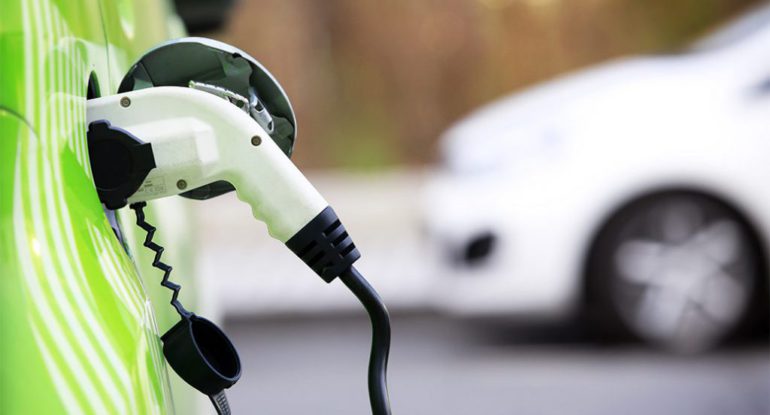How Blockchain Could Boost The Electric Vehicle Charging Infrastructure

Many countries like India and those in Europe are fascinated by the idea of electric vehicles being the ultimate future of transportation and energy. Therefore, along with allowing a host of tax and financial incentives, they are also testing protocols to strengthen the EV ecosystem with battery storage manufacturing plants.
Researchers believe that Electric
Vehicles will soon change the transportation infrastructure, and blockchain can further boost this innovation. A study by researchers at the University of Waterloo demonstrates that the trust between property owners, charging service providers, and the owners of EVs is lacking. Having a public blockchain platform will thus allow transparency so that all involved parties will have access to the data and the data would not have tampered with. Using a blockchain-based charging system will enable the EV owners to detect if they are being overcharged, and property owners can detect if they are being underpaid.
Blockchain, which is commonly known for powering Bitcoins and other cryptocurrencies, is a type of Distributed Ledger Technology (DLT) that ensures cost reduction and establishes trust but also faces issues regarding the speed of processing transactions. The fact that participants have a duplicate copy of the information on the ledger, which holds the most recent transactions or changes, reduces the need to maintain trust through traditional methods.
“Energy services are increasingly being provided by entities that do not have well-established trust relationships with their customers and partners,” said a Ph.D. candidate in Waterloo’s David R. Cheriton School of Computer Science, Christian Gorenflo, in a press statement on August 14th. “In this context, blockchains are a promising approach for replacing a central trusted party, for example, making it possible to implement direct peer-to-peer energy trading,” he added.
Gorenflo, Lukasz Golab, a professor of Management Studies, and professor Srinivasan Keshav (Gorenflo’s supervisor) of the Cheriton School of Computer Science, together teamed up with an undisclosed EV-charging service provider working with property owners, for installing EV supply equipment. This equipment is used for a fee by the EV owners.
The revenue stream among these charging platforms is distributed among property owners and charging service providers. The supplied equipment is managed by the service provider to develop trust among the property owners and the providers.
According to a case study, the researchers have found that in order to apply blockchain technology in the energy ecosystem, it is necessary for all involved parties to develop trust among themselves. Also, these parties should design a blockchain system and create smart contracts to rectify the trust issues from the initial stage. And finally, the rest of the system should be transformed gradually over time. This enables the business models to evolve a blockchain hybrid into a decentralized model.
Also, read – Is blockchain as secure as we think it is?
According to Gorenflo, “In the end, we could even have a system where there is machine-to-machine communication rather than people-to-machine. If an autonomous vehicle needs power, it could detect that and drive to the nearest charging station and communicate on a platform with that charging station for the power.”
In India, blockchain applications mainly revolve around the banking, insurance, and financial sector. Jio has recently announced that it is going to install a global blockchain network in India, having “tens of thousands of nodes operating on day one”, as published in Blockchain Magazine previously.
That being said, the collaboration of energy trading and blockchain technology is now seen as a potential area of research.
The Share&Charge Foundation, a company based in Switzerland is developing a decentralized blockchain system for EV charging, to support contracts and payment transactions. It purportedly implements the Open Charge Point Interface protocol (OCPI) system for the peer-to-peer (P2P) connections among charge point operators and service providers.
According to Share&Charge, the collaboration of OCPI with blockchain technology can allow secure contracts and connections among parties, and also improve payment and settlement.
During the ‘Global Blockchain Congress–
Consensus 2018′, hosted by the Department of Information Technology and Electronics, West Bengal in December last year, researchers from New Delhi from The Energy and Resources Institute (Teri) presented the ‘Application of Blockchain in Modern Day Power Systems: Trendsetting a New Paradigm’. Teri’s proposal projected the use cases for EVs, grid-connected microgrids, distributed battery storage, and rooftop solar PV project financing using blockchain technology.
In a similar manner, researchers from IIT Kanpur have pointed out that because of the lack of transparency in the current billing systems, allowing the service provider to overcharge the customer, blockchain could be applied to build a “verifiable billing” ecosystem.




























































